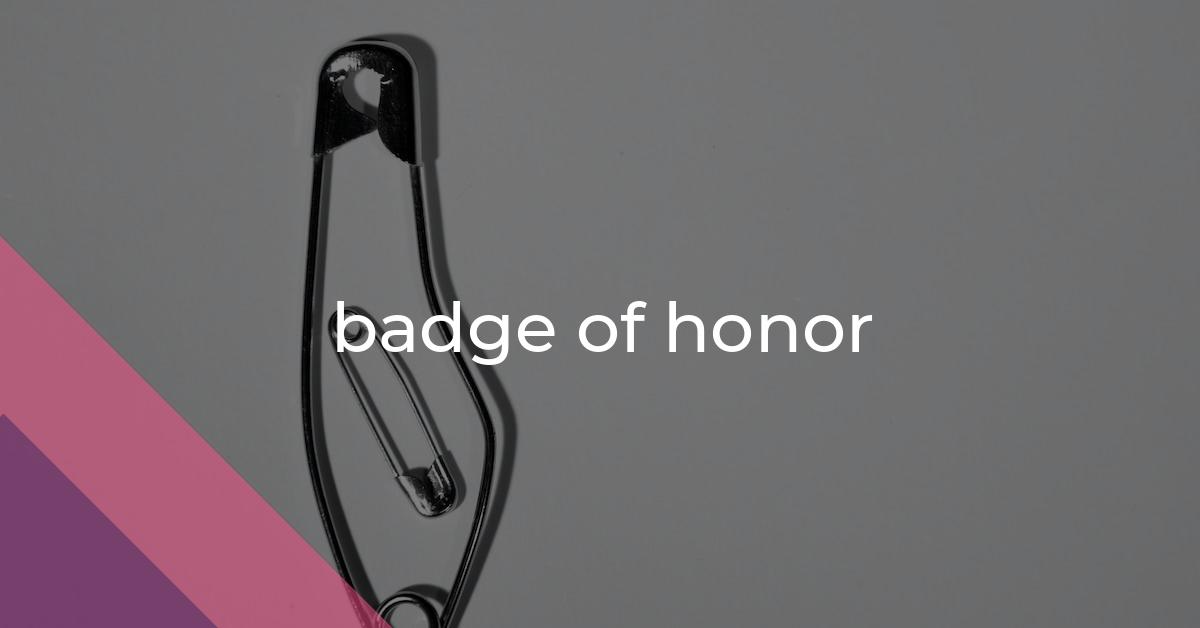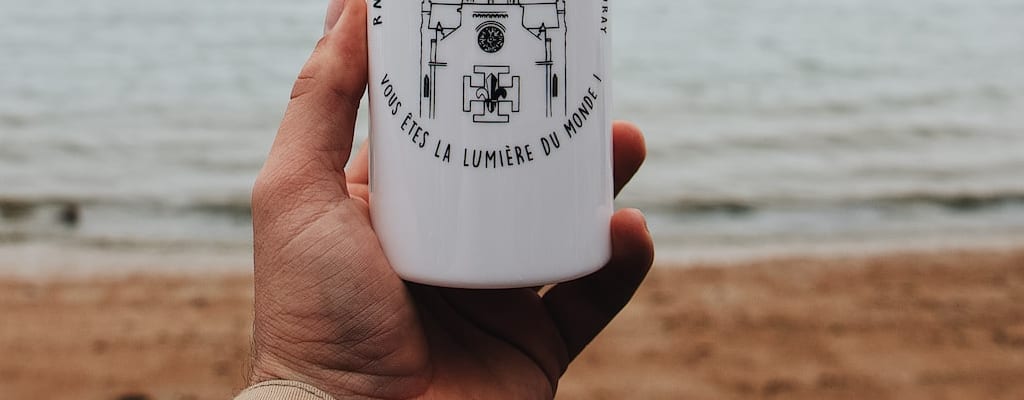badge of honor: Idiom Meaning and Origin
What does ‘badge of honor’ mean?
The idiom badge of honor refers to something that is considered a mark of pride, honor, or distinction, often earned through difficult or challenging circumstances. It signifies a sense of achievement or recognition and is seen as a symbol of respect or admiration.

Idiom Explorer
The idiom "take pride" means to feel a sense of satisfaction or pleasure in one's achievements, abilities, or personal qualities. It implies a feeling of self-respect and a recognition of one's own worth or value.
The idiom "in all one's glory" means to be seen or presented in one's most impressive and grandiose state, showcasing all of one's achievements and qualities.
The idiom "honor in the breach" means to not fully uphold or follow a code of conduct or principle that is considered important or honorable.
The idiom "Holy of Holies" refers to a sacred or highly revered place or thing, often with religious connotations. It symbolizes the utmost sanctity, purity, and importance.
"Hold one's head high" means to feel a sense of pride or self-confidence while facing a difficult or challenging situation.
The idiom "high and mighty" means that someone is arrogant, haughty, or acting superior to others. It refers to someone who thinks they are better or more important than everyone else.
The Emblem Evolving
The idiom "badge of honor" is a commonly used expression in English that carries a symbolic meaning. It symbolizes the valor, pride, and acknowledgment of an individual's achievements.
In its literal sense, the phrase "badge of honor" can be traced back to the mid-1800s when badges were worn by soldiers, policemen, and firefighters as a sign of distinction or honor. These badges served as tangible symbols, denoting rank, achievements, or affiliation. They were highly respected and admired for representing the person's honorable deeds.
Over time, the idiom "badge of honor" gained a metaphorical significance. It began to be used figuratively to describe the pride one feels from accomplishing difficult tasks or overcoming challenges. It highlights the idea that facing and conquering adversity should be seen as a source of pride instead of shame.
Today, the idiomatic expression "badge of honor" is often used to describe individuals or groups who embrace the hurdles they have overcome and wear their experiences as a symbol of pride. It suggests that these people or groups have demonstrated bravery, resilience, or determination in the face of adversity, and that these experiences have positively shaped their character.
However, the idiom can also be used in a negative or ironic sense. In some cases, it refers to individuals who boast about or glorify negative qualities or actions, considering them as a source of honor. This usage suggests that these individuals celebrate or promote attributes or behaviors that are typically seen as undesirable or morally questionable.
The related idioms "bragging rights," "take pride," and "claim to fame" all relate to the idiom "badge of honor" in their association with individual achievements and pride. "Bragging rights" refers to the right or privilege to boast about something one has achieved. It can be seen as a form of pride that individuals may feel when discussing their accomplishments. "Take pride" means to feel a sense of satisfaction and fulfillment in one's achievements or actions. It is a way of expressing personal pride and a positive self-image. "Claim to fame" refers to being known or recognized for something notable or exceptional. It signifies the pride that comes from being acknowledged or celebrated for one's achievements or unique qualities.
The phrase "badge of honor" encompasses various aspects of personal achievements, pride, and societal recognition. Its origins as a literal representation of honor through badges have transformed it into a broader metaphorical concept. It reflects the complexities of individual accomplishments, values, and societal perceptions, leaving room for further interpretation and exploration.
Example usage
Examples of how the idiom "badge of honor" can be used in a sentence:
- After completing the marathon, she proudly displayed her finisher's medal as a badge of honor.
- Being the only student to receive a perfect score on the difficult exam, he wore his high grade like a badge of honor.
- Despite facing numerous challenges, the team's perseverance became their badge of honor.
More "Pride" idioms



